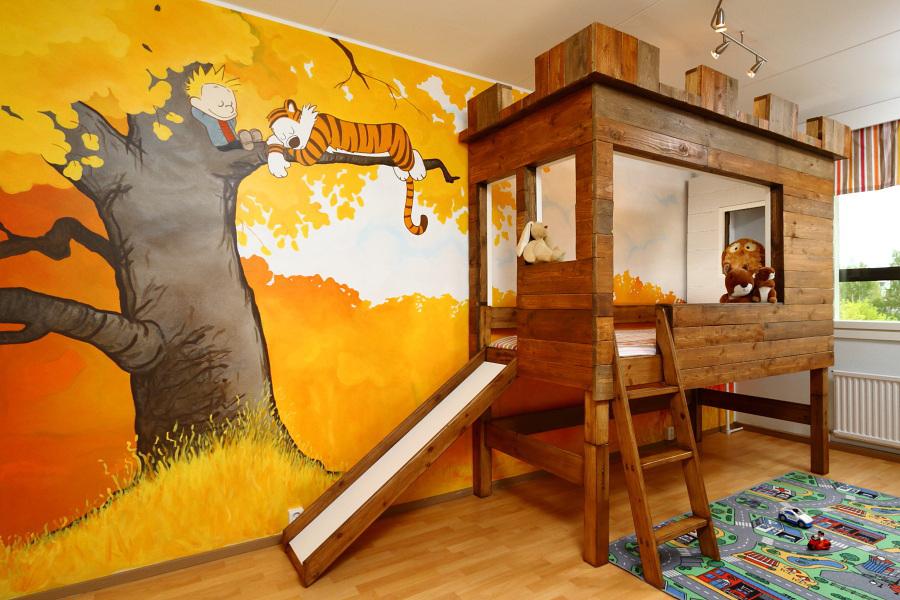The father who created a Calvin and Hobbes nursery is clearly a wonderful person for many reasons, but we should outline the big ones in the hopes that it might catch on and make the world a better place. 1) He loves his progeny enough to put this kind of labor into their happiness—the room is not just a place to play, it’s a place to sink yourself in whimsy and adventure. 2) He’s praising one of the great comic strip characters of all time: an edgy, imaginative kid who lives in the moment—all qualities to be praised. 3) In doing so, he’s undermining his authority, which shows that he’s a brave parent interested in independent thinking. (Any worry you might have that he’s too wrapped up in his offspring—that treehouse is awfully precise—can be allayed by the fact he’s celebrating a character who makes undermining his parents a life goal.)
But what if Calvin is a secret pleasure? This is a question about Calvin and Hobbes, but also about how to share your passions with your children. Some, like baseball, have a built-in parent-child component: Everyone enjoys the experience together and you talk about it endlessly for the rest of your life. In the category of books, The Lord of the Rings, like baseball, should be discussed ’till dawn.
But what if Dad’s love of Calvin changes the experience? When Calvin becomes Spaceman Spiff, it’s something only he sees—his parents are not a part of that experience. The entire strip is a mix of the “grown-up” version of reality and Calvin’s version. The reader gets to decide which is more real, but mostly you get lost in Calvin’s world and you blissfully ignore the parental world. Can you do that when he’s painted—by your dad—on your wall?
These questions are not meant to imply a judgment, just a curiosity about how kids respond to things. I always assumed you had to leave bread crumbs and hope. I left my old Calvin and Hobbes books on my son’s shelf and let him think sneaking them during reading time was his idea. When my daughter came along and stole them from her brother I figured the plan had worked.
Maybe I missed out on something, though. Maybe the lesson of Calvin is that we don’t need theories about these things. We should move easily between our imaginations and the real world long after we’ve outgrown the tree house. Maybe then we’d be inspired enough to build a nursery dedicated to an imaginary little runt whose best friend is a tiger.
